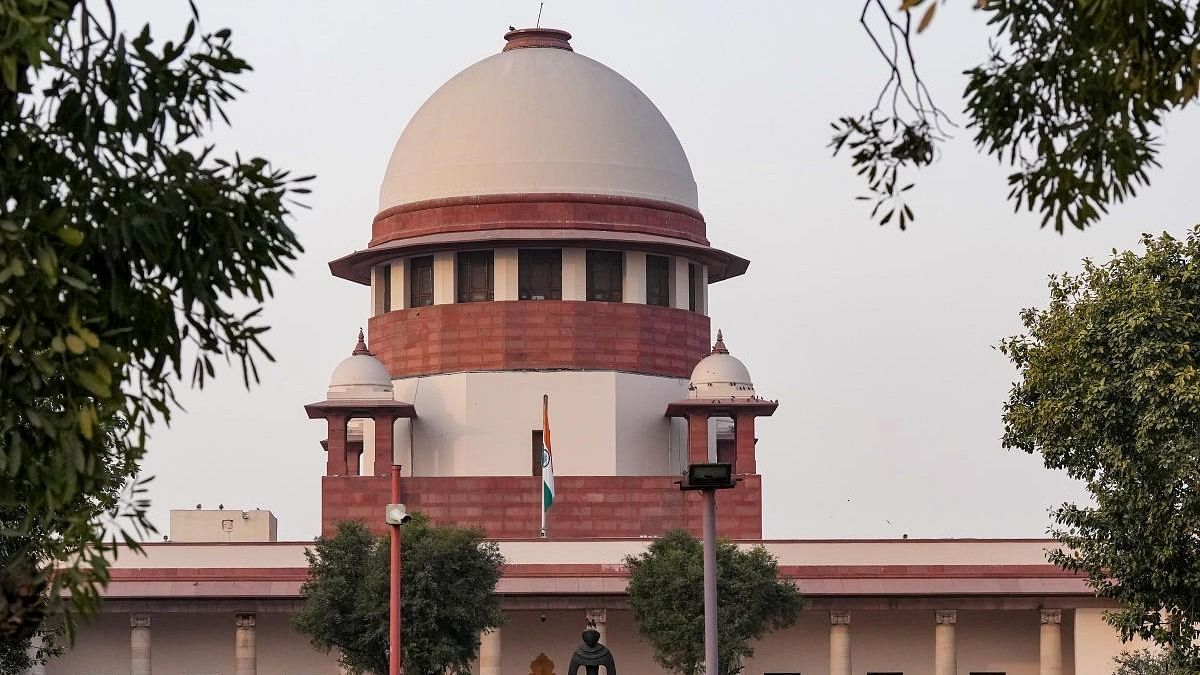
The Supreme Court of India.
Credit: PTI File Photo
New Delhi: The Supreme Court on Wednesday said the Unlawful Activities (Prevention) Act (UAPA) is one of the laws which has been enacted to prevent unlawful activities, contain terrorist activities, and impose reasonable restrictions on civil liberties, as it set aside the bail granted to eight suspected members of banned Popular Front of India.
The top court cancelled the bail of the accused in a case lodged against them under the stringent Unlawful Activities (Prevention) Act, saying national security is always of paramount importance and any act in aid to any terrorist act – violent or non-violent is liable to be restricted.
A bench of Justices Bela M Trivedi and Pankaj Mithal allowed the National Investigation Agency's appeal against the Madras High Court's bail order of October, 2023, pointing out in such cases, a prima facie view on broad probabilities on their involvement was sufficient to reject bail.
The court held the High Court committed gross error in not considering the entire material in proper perspective.
"In our opinion High Court should not have taken a lenient view, more particularly when there was sufficient material to show their prima facie involvement," the bench said.
The NIA claimed the respondents accused were involved in radicalising the youth and imparting them training to commit terrorist acts and make the country an Islamic State by 2047 through armed struggle.
In its judgment, the bench said this court has often interpreted the counter terrorism enactments to strike a balance between the civil liberties of the accused, human rights of the victims and compelling interest of the state.
"The UAPA is one of such Acts which has been enacted to provide for effective prevention of certain unlawful activities of individuals and associations, and to deal with terrorist activities, as also to impose reasonable restrictions on the civil liberties of the persons in the interest of sovereignty and integrity of India," the bench said.
After noting the charge sheet as also the other material and documents, the bench said there are reasonable grounds for believing that the accusations against the respondents are prima facie true and that the mandate contained in the proviso to Section 43(D)(5) would be applicable for not releasing them on bail.
The court considered the seriousness and gravity of the alleged offences, previous criminal history of the accused, hardly one and half years of custody, the severity of punishment prescribed for the alleged offences and prima facie material collected during the course of investigation, to hold the order passed by the High Court cannot be sustained.
"We are conscious of the legal position that we should be slow in interfering with the order when the bail has been granted by the High Court, however it is equally well settled that if such order of granting bail is found to be illegal and perverse, it must be set aside," the bench said.
The court also took exception to HC's finding that there was no material showing their involvement of the accused. "Such perverse findings of the High Court deserve to be strongly deprecated more particularly when the appellant has not alleged the offence under Section 15 of UAPA either in the FIR or in the chargesheet against the respondents," the bench said.
The court ordered the accused surrender forthwith before the NIA. It also directed for expeditious trial since charge sheet already stood filed in the case.
The NIA challenged the correctness of the Madras High Court, granting bail to Barakathullah, Idris, Mohd Tahir, Khalid Mohammad, Syed Khaja, Mohinudeen, Yasar Arafat and Fayaz Ahmed.
The agency registered the FIR on September 19, 2022 against the respondents and other members and office bearers of PFI. The accused were arrested on September 22, 2022 and a charge sheet came to be filed on March 17, 2023.
